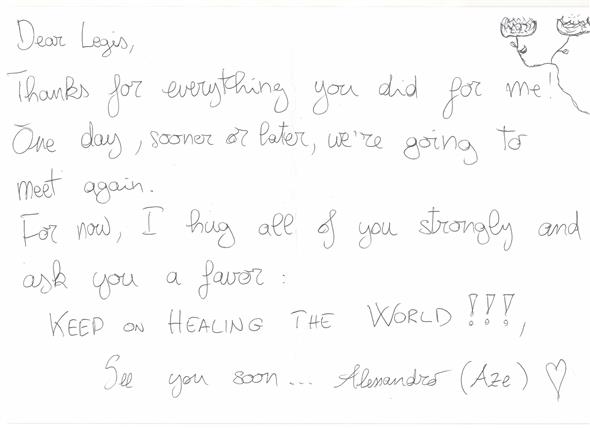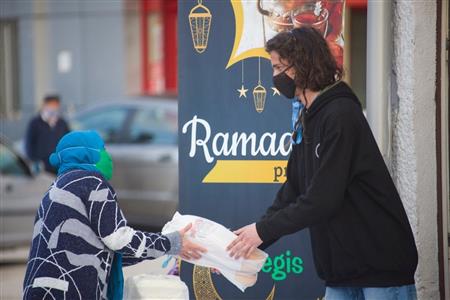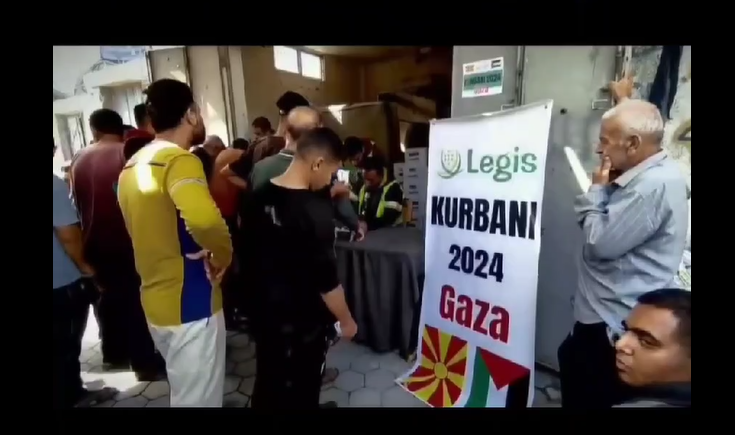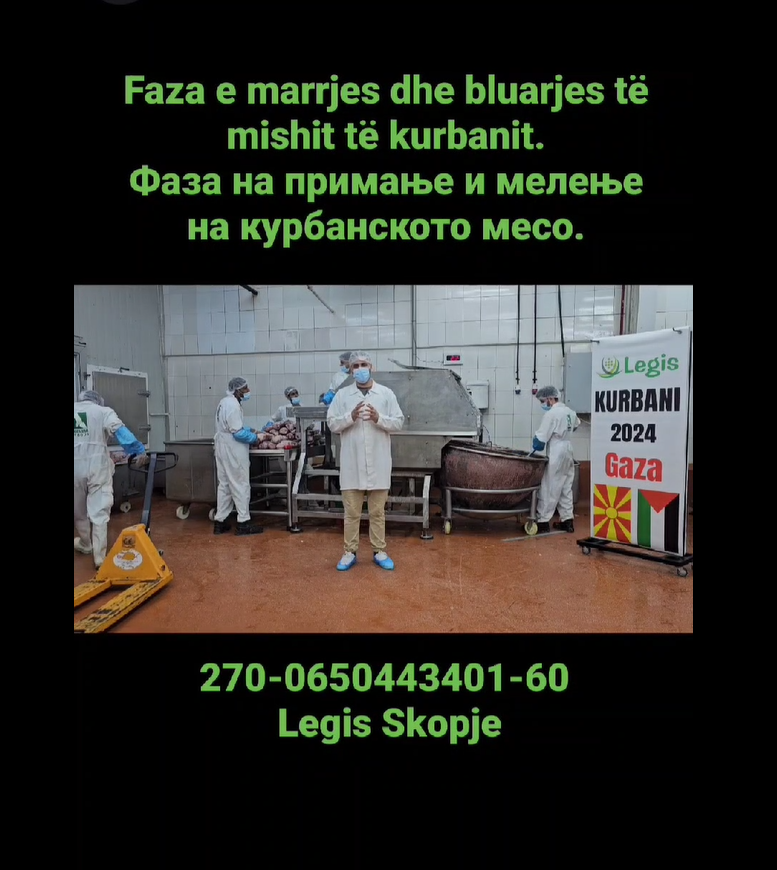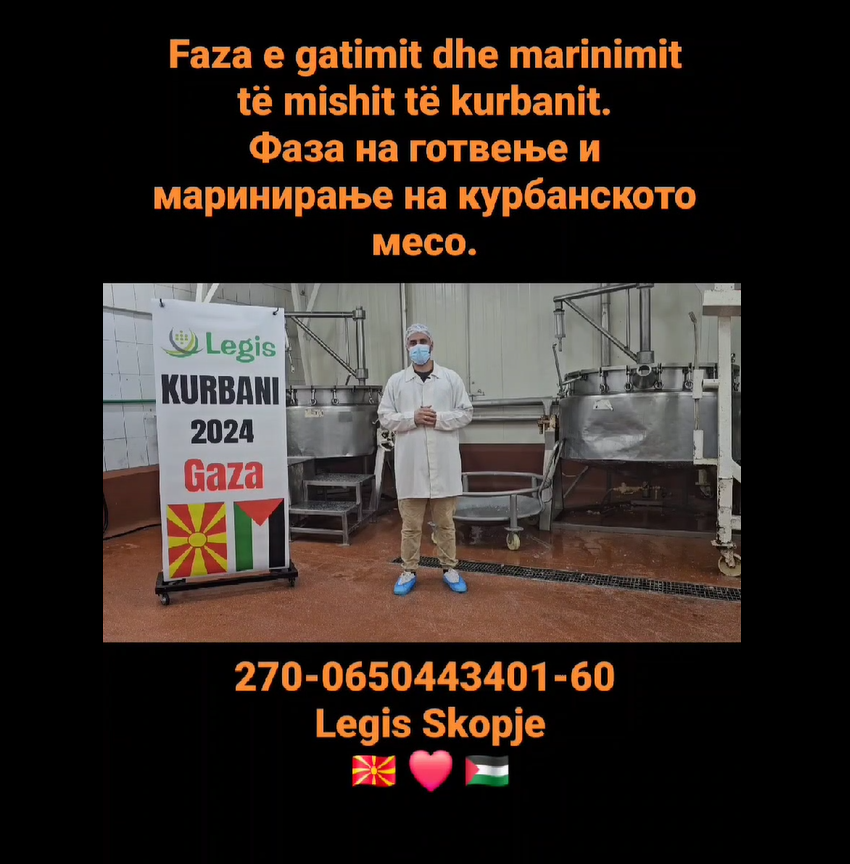In the past six years, Legis was open for local and foreign volunteers.
We had 32 volunteers from different countries as: USA, Germany, France,
Italy, Spain, Israel, Poland, Czech Republic, Austria, Belgium, Estonia,
Singapore, Slovenia, Canada, Great Britain.
But the recent pandemic has…
In the past six years, Legis was open for local and foreign volunteers.
We had 32 volunteers from different countries as: USA, Germany, France,
Italy, Spain, Israel, Poland, Czech Republic, Austria, Belgium, Estonia,
Singapore, Slovenia, Canada, Great Britain.
But the recent pandemic has stopped the movement and with that the
volunteers also.
Still, during the pandemic, we were happy to host a volunteer from
Italy.
Alessandro Ramazzoti was the first one who, beside the risk from virus,
wanted to be part of our team in the period of April and May 2021. We
are very grateful and proud of him for his work and contribution, but
also for his ideas and efforts to understand our work and the society of
North Macedonia. He also wrote a note for his experience in Legis, that
you can read below:
Volunteer abroad during a pandemic: why not?
Hello! I’m Alessandro, from Italy. I’ve been volunteering at Legis between the end of March and the beginning of May 2021.
It was the end of January when I first thought about volunteering. The news coming from the Balkans – especially from the Bosnia-Croatia border – were terrifying: migrants, refugees living in camps without basic hygiene facilities, without access to food and clothes, and exposed to rigid winter temperatures. “Why should I not go there to help?”, I thought, and started searching for organizations operating on the so-called “Balkan route”.
My plan was to graduate in March – in international law, with a special interest for human rights – and soon after engage in a volunteering activity. Time was running fast and the current Covid-19 pandemic did not help to organize the whole thing. I had to find an organization ready to welcome volunteers, to complete all the bureaucratic procedures and finally hope that volunteering could be considered a “valid reason to travel” – missing which I could not exit from Italy. All of this in about one and a half months, while thinking about the thesis dissertation that would end my university career. It was a stressful period indeed.
Legis was among the organizations I found. They told me the activities with migrants at the transit camps could not be carried out because of the pandemic, but that help was nevertheless provided to the poor people in Skopje. The bureaucratic procedure to start volunteering did not require much time, nor many documents. It sounded like what I was searching for.
That is how, on the 22nd of March, I found myself on a train headed to Bari, from where I took a ferry to Durres and finally a bus to Skopje. Here I was, incredibly!
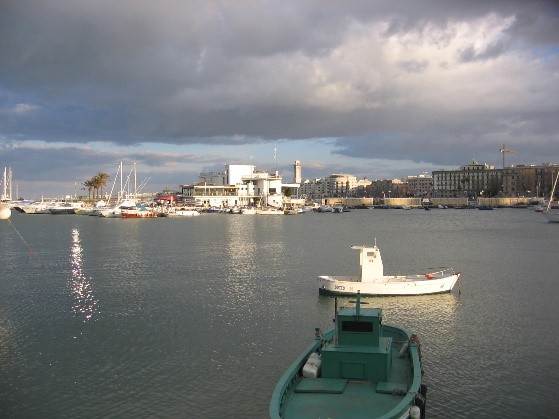
The port of Bari: before boarding the ferry to Durres
Now, at the moment I’m writing, few days are left before my departure and I can say, without doubts, that my experience here was amazing! I met wonderful people, both here at Legis and elsewhere. Macedonian people are very welcoming, the food is tasty and peculiar, and there are enchanting landscapes to please the eyes. The word “macedonia”, in Italian, means “fruit-salad” and the country can be rightly compared to the latter: many different lifestyles, cultures and traditions are mixed in this small country, as different fruits are mixed in a bowl.
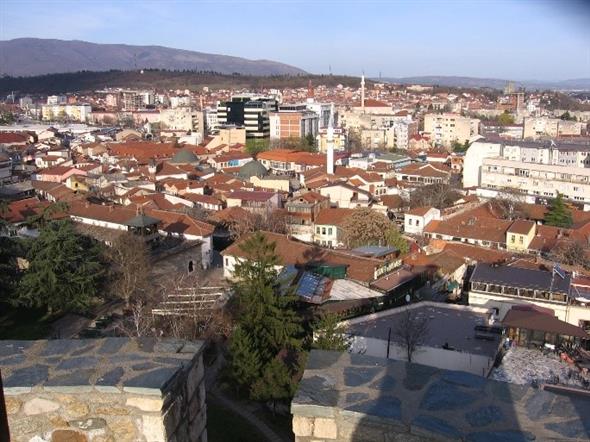
The old town (?aršia) of Skopje from the fortress
The activities at Legis did not meet the expectations I had in January, when I figured myself aiding people living in the adverse conditions at the so-called “transit camps”. But they fully met the expectations I had in March, just before leaving home: indeed, the emails I received from Legis expressly stated that activities at the camps were temporarily suspended. Nevertheless, it was a truly enhancing experience! I couldn’t have asked for more – in the present conditions. Every day we helped the people who cannot afford decent standards of life here in Skopje: we gave bread, clothes or, from time to time, other items that they needed. For most of the time I was here, Muslims were celebrating the Holy Month of the Ramadan: that – for what concerns Legis’ work – meant more donors and more supplies. We distributed hot meals (iftars) on every other day, which were very much appreciated by the people, who came numerous to receive it. The people were communicative and smiled a lot – although with the face-masks on; many of them spoke a few words in German, Italian, or English and did not hesitate to show their skills off: I had interesting talks with them even if some times they started speaking a fluid “makedonskij”, which I could not understand.
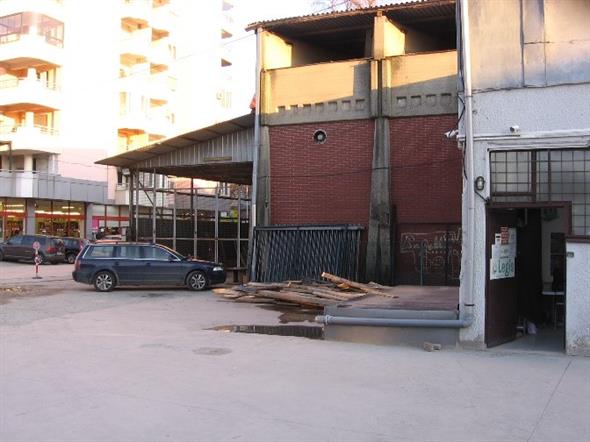
Legis’ main door (on the right)
With my great luck, we also had the opportunity to go to Gevgelija – where a transit camp is located at the border with Greece – to bring (mostly) clothes. The journey to the south was very pleasant: as I wrote above, Macedonian landscapes enchant the eye, and the talks with Jasmin were definitely entertaining. Visiting the camp was a strange, but nevertheless interesting experience. What initially shocked me were the vehicles of any kind (trucks, cars, vans) “parked” inside the camp: they were those used by smugglers to help people cross the border… and they were many!
Activities with the people could not be carried out and therefore we just walked through the camp, looking at the various structures the function of which was, step after step, explained by Jasmin. Walking next to the containers where the people-on-the-move were accommodated, under their enquiring eyes, I felt a bit uneasy; mainly because I was just observing them without being able to help/support/entertain anyhow. Except for this feeling, the visit was good. It was especially interesting to watch the children’s drawings on the playroom walls. Some of them depicted, through children’s eyes, the experience they had gone through: police, boats at sea, and walls were recurring images.
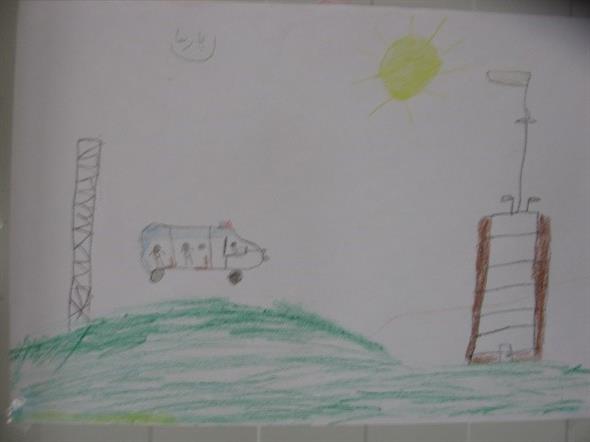
One child’s drawing in Gevgelija
Talking about the migrants’ situation, I was put in contact with Jasmina and Avni, Legis’ workers in the transit camps of Gevgelija and Tabanovce respectively. Every day, for the month of April, they sent me their reports on the movements at the camp: how many people arrived, how many stayed, and whether they had access to food, medical services and hygiene facilities. Thanks to this I had an idea about the movement of people in Macedonia, which made me feel involved even if from far away.
Apart from the visit at Gevgelija, I had the opportunity to visit – at least from the outside – the Detention Centre of Gazi Baba, scene of infamous events in the past. We regularly brought meals, or food packages there. Located on the hill of Gazi Baba, it has an amazing view on the city.
We also brought some food and other items to the Center for Asylum Seekers in Vizbegovo: there I heard shocking stories about the migrants’ journey and appreciated the resilience they showed. Indeed, we once brought there the material needed to build a construction for cats. Why? What help does it bring to their situation? It helps them to remain human, to feel human, after the abuses they suffered. For this purpose, we also organized a juggling show: at the hostel where I stayed, there were three jugglers from South America, who kindly brightened the asylum-seekers’ day with their mesmerizing juggling skills.
So far, I described few general and peculiar experiences, but there are many others that I cannot – for reasons of space – share here. However, I want to say something more about the people here at Legis, because if I’m here happily writing about this month and a half in Macedonia, it is mainly thanks to them. Every day I was welcomed at Legis’ headquarters by their friendly attitude, that helped restore the energies I spent walking from the hostel (half an hour walk!). It’s impossible to get bored in their company: jokes are frequent and their teachings about the Macedonian lifestyle, history, politics, and traditions allowed me to understand this country in a special way that no other people could do. I’m very thankful for that! They also gave me valuable insights on the migrants’ situation that compensated – to a certain extent – the fact that activities at the camps were not allowed. I met a great number of interesting people here at Legis, all of whom have somehow entertained me with good talks and stories, or just welcomed me with smiling eyes; I will not forget them!
Concluding this very brief account of my experience as a volunteer at Legis, I would like to say that coming here was one of the craziest, but most successful plans I’ve engaged in during my (short) life. It was just one month and a half, but I lived incredible experiences – although some of them limited by the ongoing pandemic. Sometimes I felt like I was useless here, just piling bread to distribute to a bunch of people – not exactly what I had in mind in January. But I finally understood I was wrong because volunteering with a local organization of this kind means everything: from piling bread for locals to entertaining asylum-seekers; from hearing news about the people-on-the-move to filling boxes with pasta, sausages and shampoo. And each of these moments must be appreciated because somehow, you’re contributing to help someone. That’s the beauty of it!
Hvala Makedonija i hvala mlogu Legis! Se gledame naskoro!

Here you can find Alessandro Ramazzoti final report
